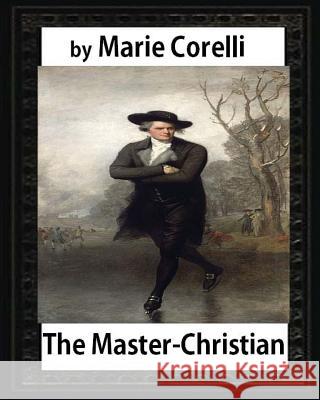The Master-Christian » książka
The Master-Christian
ISBN-13: 9781532878633 / Angielski / Miękka / 2016 / 342 str.
The Master-Christian
ISBN-13: 9781532878633 / Angielski / Miękka / 2016 / 342 str.
(netto: 56,98 VAT: 5%)
Najniższa cena z 30 dni: 59,00
ok. 16-18 dni roboczych.
Darmowa dostawa!
Like many Victorians, particularly those later in the century, Marie Corelli, one of the best selling Victorian and early-twentieth-century novelists, believed in her own fervent, if idiosyncratic, Christianity. As Aubrey Leigh, one of the characters in The Master Christian (1900) proclaims, "There are no Charles Kingsleys nowadays, - if there were, I should call myself a 'Kingsleyite'." Essentially, Corelli believes in an essential, non-institutional form of Christianity, for as her character explains, A church is a building more or less beautiful or ugly as the case may be, and in the building there is generally a man who reads prayers in a sing-song tone of voice, and perhaps another man who preaches without eloquence on some text which he utterly fails to see the true symbolical meaning of. . . . But as matters stand I am not moved by the church to feel religious. I would rather sit quietly in the fields and hear the gentle leaves whispering their joys and thanksgivings above my head, than listen to a human creature who has not even the education to comprehend the simplest teachings of nature, daring to assert himself as a teacher of the Divine. My own chief object in life has been and still is to speak on this and similar subjects to the people who are groping after lost Christianity. They need helping, and I want to try in my way to help them."Appropriately, although most of the attacks on religion in The Master Christian - a very devout book - have Roman Catholicism as their target, Corelli also criticizes protestantism, even when it diverges from the Roman church. She, for example, uses Cyrillon, the young reformer, as a way of sharply criticizing both Protestant and Catholic services because they ignore Christ's explicit instructions: Nevertheless, the glory of that banished Creator shone in the deepening glow of the splendid heavens, --and--from the silver windings of the Seine which, turning crimson in the light, looped and garlanded the time-honoured old city as with festal knots of rosy ribbon, up to the trembling tops of the tall poplar trees fringing the river banks, --the warm radiance palpitated with a thousand ethereal hues of soft and changeful colour, transfusing all visible things into the misty semblance of some divine dwelling of dreams. Ding-dong--ding dong The last echo of the last bell died away upon the air--the last words enunciated by devout priests in their cloistered seclusion were said--"In hora mortis nostrae Amen "--the market women went on their slow way homeward, --the children scampered off in different directions, easily forgetful of the Old-World petition they had thought of, yet left unuttered, --the bargeman and his barge slipped quietly away together down the windings of the river out of sight;-- the si
Zawartość książki może nie spełniać oczekiwań – reklamacje nie obejmują treści, która mogła nie być redakcyjnie ani merytorycznie opracowana.











